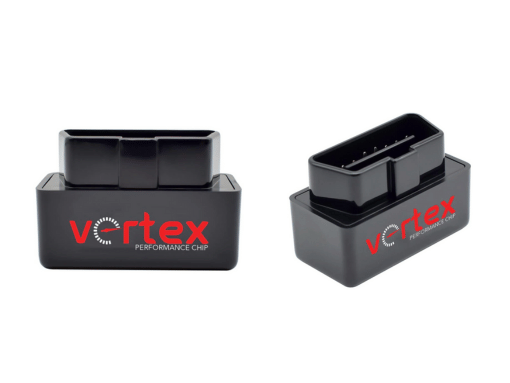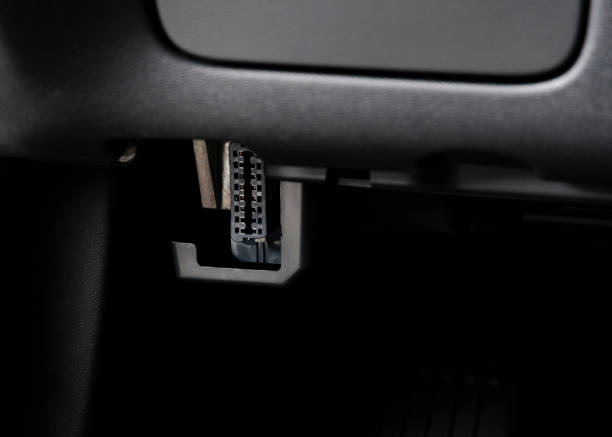OBD2 performance chips have become popular over the last decade as an easy plug-and-play modification for adding horsepower and improving vehicle performance. But do these electronic devices deliver on their claims?

Whether performance chips work well is a nuanced issue. Their effectiveness hinges on three key factors – the type of chip used, the specific vehicle it’s installed on, and the driving style of the owner.
Certain chips are designed for stock, unmodified engines and aim to enhance fuel efficiency and provide modest power gains. Meanwhile, custom-tuned chips are available to optimize modified engines further and maximize power output.
Driving habits also impact results. Aggressive drivers may better utilize the extra horsepower from a chip to improve acceleration times. However, those with a smoother, moderate technique could see negligible gains or even decreased fuel economy compared to advertised claims. So, driver behavior affects how well the chip improvements materialize in real-world conditions.
Ultimately, performance chips can yield benefits but aren’t a magic fix. The chip characteristics, vehicle application, and owner’s driving style all determine whether these devices live up to their potential in practice.
What is an OBD2 performance chip?
An OBD2 performance chip is a small computer chip that plugs into the OBD2 port of a vehicle.

Performance chips intercept and modify signals between a vehicle’s engine control unit (ECU) and its sensors. By altering these signals, the chip attempts to trick the ECU into delivering more power, increasing throttle response, and improving fuel efficiency.
Some key things to know about OBD2 performance chips:
- They are designed to be plug-and-play devices that connect to the OBD2 port. No splicing of wires or permanent installation is needed.
- Chips must be vehicle-specific, as each make and model has a unique ECU.
- They do not actually reprogram or alter the ECU itself. The ECU code remains untouched.
- Results vary widely based on the vehicle, quality of the chip, and driving conditions.
What to expect from an OBD2 performance chip
OBD2 performance chips claim to provide the following improvements:
- Increased horsepower and torque – Typically, a 10-20% gain is claimed. This can improve acceleration.
- Improved throttle response – More responsive pedal input due to altered throttle signals.
- Enhanced fuel economy – Some chips claim to optimize fuel delivery and ignition timing for efficiency. MPG may increase slightly.
- Engine tuning ability – Allow drivers to adjust parameters via smartphone to tune for performance or economy.
However, it’s important to understand that these benefits are maximal figures under ideal conditions. Real-world results can vary dramatically depending on the vehicle, chip quality, and testing methods. Many independent tests reveal that actual gains are much more modest overall.
What Are the Potential Downsides and Limitations?
While OBD2 chips promise easy plug-and-play power gains, there are some significant downsides to consider:
- Minimal gains – Testing often shows lackluster 3-5% horsepower and torque improvements at best, contrary to exaggerated marketing claims.
- Drivability issues – Errors in fuel trim modifications can cause rough running, stalling, and check engine lights.
- Voided warranty – Performance modifications can void manufacturer powertrain warranty.
- Poor quality – Cheaply made chips are common and can potentially damage ECU.
- Limited tuning – Adjustments are temporary and minimal compared to professional ECU tuning.
- Inconsistent results – Benefits diminish over time as ECU adapts, requiring re-tuning.
The different types of performance chips
There are some different types of performance chips:
- Tuning chips – The most common and versatile performance chips. They alter parameters like air/fuel ratio, ignition timing, and rev limiters to optimize the engine for more power and torque. Tuning chips come pre-programmed for basic improvements or allow custom tuning via laptop for maximum gains.
- Racing chips – Designed solely for maximum power gains, with little regard for engine longevity or drivability. Racing chips aggressively advance the timing and richen fuel mixtures to generate more horses. However, this can impact everyday driveability and fuel mileage.
- Economy chips – Take a conservative approach focused only on enhancing MPG through tweaks like reducing throttle input sensitivity and leaning out fuel delivery. Not intended to increase horsepower.
- Tow/haul chips – Provide extra low-end torque and quicker transmission responsiveness when towing heavy loads. Prevent gear hunting and boost performance under load.
- Aftermarket ECU chips – Tailored specifically for modified engines with aftermarket parts like turbochargers, high-flow injectors, etc. Tune the ECU to correctly operate with aftermarket components.
- Diesel chips – Optimize diesel engines by boosting fuel delivery, increasing turbo boost, adjusting injection timing. Result is more power, torque, and MPG.
- Bench tuning chips – Blank chips tuned on a dynamometer using an engine’s specific data like displacement, mods, etc. Allows for completely custom ECU tuning.
Tips for choosing an effective performance chip
- Match the chip to your goals – more power, better economy, towing, etc. Don’t use a racing chip for fuel efficiency.
- Ensure compatibility with your vehicle’s make, model, engine, and year. Get the right chip for your ECU.
- For turbocharged engines, use a chip designed specifically for turbos. General chips won’t optimize boost properly.
- For modified engines, choose a chip tailored for your modifications like intake, exhaust, injectors, etc.
- Buy from reputable brands known for quality and results based on consumer reviews. Avoid no-name chips.
- Use a chip with upgradeable tuning software for adjusting as mods are added.
- Gas and diesel engines have different needs. Get a chip designed for your fuel type.
The right chip for your application will deliver the best power, economy, and drivability. Research options thoroughly and match the chip to your vehicle’s unique requirements.